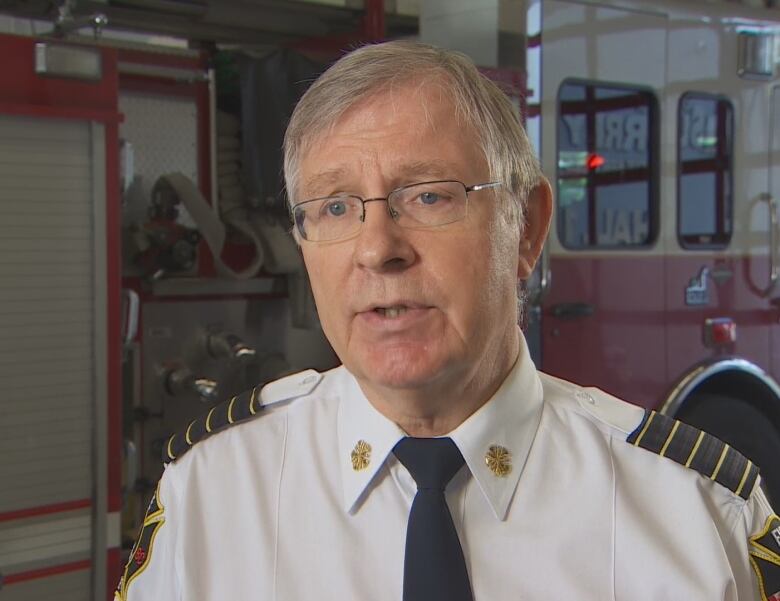Firefighters in Vancouver and Surrey to carry overdose-reversing naloxone
'These crews start giving naloxone as soon as possible which will save lives'

Drug overdoses in Surrey are up way up from an average of threeperday last year, to an average of almost eightperdayso far in 2016.
That meant 67 overdoses in the city last year, compared to 42 in 2014.
"So far this year, we've attended over 200 calls ... associated to an overdose," Surrey Fire Chief Len Garis told CBC News.

No surprise then Garis is a big fan of a program launched today that will see both Surrey and Vancouver firefighters trained to carry and administer the overdose-reversing drug naloxone.
Garis says it's especially important in Surrey because the area is sogeographically vast and firefightersare oftenfirst on-scene ina drug emergency.
"Sometimes there's is a gap between when firefighters and paramedics arrive," he said. "Our firefighters express frustration because they don't have the tools to reverse the effects, and often they're waiting for a few moments to many, many minutes."
"This means we'll be able to have crews start givingnaloxoneas soon as possible, which will save lives."
Garis says training for all 350 Surrey firefighters begins today. He said the cost of naxolone is only $3 per treatment and estimates the Surrey Fire Department will spend between $500 and $600 on the drug annually.
Naxolone is often administered with an EpiPen-like device into the thigh or shoulder muscle.

The new program will also expand the number of paramedics trained to administer naloxone by an additional 525. Most of those are in rural B.C.
Bronwyn Barter, president of the ambulance paramedics of B.C. says although her organization doesn't oppose firefighters carrying naloxone,she thinksit's putting the cart before the horse.
"We really believethis is anill-conceived response by the health ministerto the real patient care issue whichis a lack of paramedic and ambulance resources," said Barter.
"People can go in and load the patient up with [naloxone] which has a very short shelf-life and can be overcome by the drugs that are in them. Ultimately what the patient needs is the front line medical professionals," she said."If we had the appropriate ambulance and paramedic resources throughout the province this wouldn't be anissue."
In 2015, there werean estimated465 deaths province-widefrom illicit drugs.Fentanylwasdetected in 30 per cent of the fatalities.
Fentanylis a growing problem and increasingly foundmixed with street levelopioidssuch as morphine, heroin andoxycodone.
With files from Jesse Johnston












_(720p).jpg)


 OFFICIAL HD MUSIC VIDEO.jpg)
.jpg)



























































































